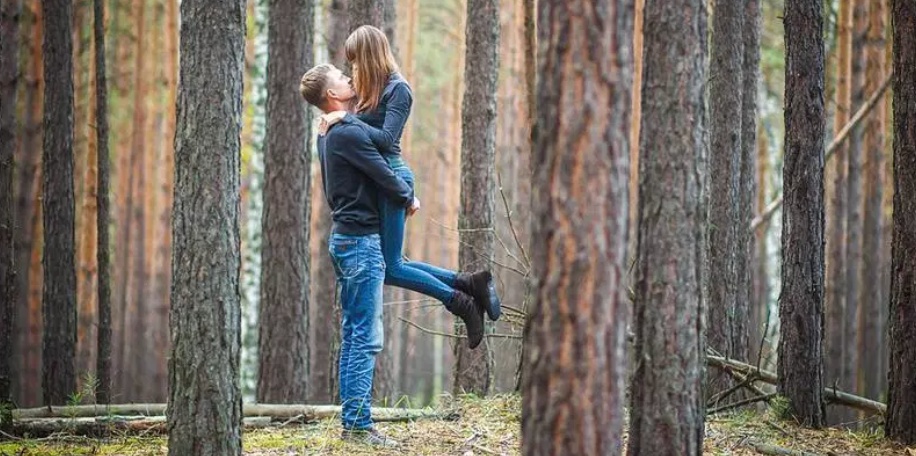The arrangements move quickly after that, medical records transferred, house preparations coordinated, school paperwork completed for Zora’s return to her former academy in the fall. On their final museum visit before the Rockefellers’ departure, Harrison and Zora stand before a painting that has become one of their favorites, Edward Hopper’s Nighthawks. With its illuminated diner set against the darkness of night, its occupants both together and profoundly separate.
I’ve been thinking about perception, Zora says, studying the painting thoughtfully, about how we see each other but also how we allow ourselves to be seen. In what context, Harrison asks, recognizing the philosophical turn her mind often takes in these conversations. In the context of connection, she explains, the people in this painting are physically close but emotionally distant.
They’re not truly seeing each other, Harrison nods following her train of thought. Whereas genuine connection requires mutual recognition, exactly, Zora confirms, like what happened with us eventually after the initial misperception. The directness of this reference to their first encounter, something they’ve discussed in abstract terms but rarely addressed so explicitly, indicates Zora’s growing comfort with their shared history.
I’m grateful for that eventual recognition, Harrison acknowledges, though I regret the circumstances that made it necessary. Zora considers this with her customary seriousness. I’ve been wondering lately if those circumstances weren’t somehow necessary, if the confrontation created an opening for connection that might not have existed otherwise.
The insight strikes Harrison as profound, the possibility that their conflict on flight 1857, uncomfortable as it was, provided a foundation for understanding that casual interaction might never have achieved. That’s a generous perspective, he observes. Not generous, Zora corrects mildly, just realistic.
Sometimes difficult moments reveal more than comfortable ones ever could. As they continue through the gallery, Harrison is struck once again by the remarkable mind developing in this young person, her capacity for complex thought, her willingness to examine difficult truths, her ability to integrate intellectual understanding with lived experience. Later that week, the day of departure arrives.
A medical transport service has been arranged to fly the Rockefellers back to Philadelphia, with Josephine accompanying them to help with the transition before returning to her responsibilities in Chicago. Harrison and Alina come to the brownstone to say their goodbyes, not permanent farewells, but acknowledgments of a geographic shift in their connection. Marcus, stronger than he’s been in months though still requiring careful monitoring, expresses his gratitude for their friendship during this challenging chapter.
Our home in Philadelphia is always open to you both, he tells them sincerely. You’ve become important to our family in ways I wouldn’t have anticipated. The feeling is entirely mutual, Alina assures him, and I’ll be in Philadelphia for a conference in September.
I hope to see you then, especially you Zora, to celebrate the anthology publication. When the moment comes for final goodbyes, Harrison finds himself unexpectedly moved. Kneeling to Zora’s eye level as he once did in that Philadelphia hospital corridor, he says simply, thank you.
For what, she asks, echoing their exchange from months earlier. For allowing me to know you, he answers honestly. It’s been one of the great privileges of my life.
Zora’s composure wavers slightly at this sincere acknowledgment. I’ll miss our museum visits, she admits, and our conversations. Those can continue, Harrison assures her.
Different museums perhaps, but the same conversations. I’m in Philadelphia regularly for business. And New York is just a train ride away, Zora adds, recalling his earlier reassurance.
Dad says we might visit in the summer once he’s stronger. I’ll look forward to that, Harrison promises. In the meantime, there’s email and phone calls.
Some connections don’t require physical proximity. As the Rockefellers depart for the airport, Harrison and Alina stand on the brownstone steps, watching until the car disappears around the corner. The Chicago chapter of their unexpected connection is ending, but the relationship itself continues, transformed by distance perhaps, but sustained by the mutual recognition that has developed over these extraordinary months.
She’ll be all right, Alina says softly, sensing her son’s reflective mood. Yes, Harrison agrees. She’s remarkably resilient, and having Marcus’ health improving makes all the difference.
I wasn’t just referring to her father’s illness, Alina observes. I meant she’ll be all right with the transition in your relationship. She understands its value beyond physical presence.
Harrison nods, appreciating his mother’s insight. She understands more than most adults I know. As they walk back to their waiting car, Harrison reflects on the journey that began nine months ago on flight 1857.
How a confrontation born of unconscious bias transformed into a connection that has enriched both their lives immeasurably. From that tense moment when a businessman questioned a child’s place in first class, a relationship has developed that defies conventional categories, but contains profound value for both participants. One month later, Harrison visits Philadelphia for a client meeting.
After concluding his business, he makes his way to the elegant Rockefeller home in Chestnut Hill. The house, a beautiful colonial revival set back from the street amid mature trees, shows signs of renewed life after months of vacancy. Fresh flowers spill from window boxes, and the garden has been recently tended.
Marcus answers the door himself, looking remarkably improved since Harrison last saw him. Though still thin, his posture is straightened, his movements more assured, his color significantly better. Harrison, he greets warmly.
Right on time, come in, come in. Zora’s just finishing her piano practice. The house’s interior reflects the family’s refined taste.
Art-filled walls, well-stocked bookshelves, beautiful antiques alongside contemporary pieces. Photos of Eleonora appear throughout, her presence still honored in this space she once animated. From another room comes the sound of piano music, Bach’s prelude in C major, played with technical proficiency if not yet emotional depth.
The music stops abruptly, followed by the sound of a piano bench scraping back. Moments later, Zora appears in the doorway, her face lighting with genuine pleasure at seeing Harrison. You came, she says simply.
I promised I would, he reminds her with a smile. How could I visit Philadelphia without seeing my favorite Rockefellers? Marcus excuses himself to check on lunch preparations, leaving them to catch up. Zora leads Harrison to the sun-filled conservatory at the rear of the house, where plants flourish in the warm June light.
How does it feel to be home, Harrison asks as they settle into comfortable chairs. Both familiar and strange, Zora admits. Like putting on clothes you haven’t worn in a while, they still fit, but they feel different somehow.
Harrison nods, understanding completely. And your father seems significantly improved. The new treatment protocol is working well, Zora confirms.
He’s even talking about returning to limited practice hours in the fall, she pauses, adding more quietly, though I worry he’s pushing himself too quickly. That’s understandable, Harrison acknowledges. After serious illness, finding the right balance between recovery and resuming normal life can be challenging, Zora studies him thoughtfully.
You still do that, you know. Do what? Validate my concerns without dismissing them as childish, she explains. Most adults would just assure me everything will be fine, Harrison smiles at her observation.
Well, I’ve learned that your concerns are generally warranted and remarkably perceptive. Dismissing them would be foolish on my part, this draws a small smile from Zora. They fall into their familiar pattern of conversation, discussing books they’ve read recently, exhibitions they’ve visited in their respective cities, ideas that have captured their attention.
The geographic distance has done nothing to diminish the intellectual connection that forms the foundation of their friendship. Eventually, Marcus joins them, and conversation shifts to his improving health, to Zora’s summer academic program at the University of Pennsylvania, to Harrison’s recent business developments. The easy flow of their interaction reflects the genuine connection that has developed among them, no longer the awkward politeness of strangers, but the comfortable exchange of people who have come to know and value each other.
After lunch, Marcus excuses himself for his afternoon rest, still a necessary part of his recovery routine. Zora offers to show Harrison the garden, which is beginning to flourish under summer sun after months of minimal care. As they walk among roses that Elenora had planted years earlier, Zora says unexpectedly, I received the final proof of my essay yesterday, for Dr. Whitfield’s anthology.
That must be exciting, Harrison responds, your first published work. Zora nods, clearly pleased despite her attempt at nonchalance. It’s been edited, of course, but the essence remains.
She hesitates, then adds, I wanted to make sure you were comfortable with how I represented our initial encounter. I trust your judgment completely, Harrison assures her, but I appreciate your consideration. The anthology will be published in September, Zora continues.
There’s going to be a launch event at the University of Pennsylvania. Dr. Whitfield said you might attend with her. I wouldn’t miss it, Harrison promises.
Seeing your work recognized will be a highlight of my year. They pause beside a particularly vibrant rose bush, its crimson blooms reaching toward the sun. I mother loved these, Zora says softly.
She said they reminded her that beauty can emerge from the same plant that bears thorns. The metaphor beauty and pain coexisting, even being necessary to each other, resonates with their shared experience over the past year. From the discomfort of their first encounter to the enriching connection that followed, from Zora’s grief to her tentative re-engagement with life, from Marcus’s illness to his gradual recovery, each journey has contained both thorns and blossoms.
Your mother sounds like she was very wise, Harrison observes. She was, Zora confirms. Then with a small smile she adds, she would have liked you, I think, eventually.
Eventually, Harrison raises an eyebrow. Well, she might have had some choice words for you first about our meeting on the plane, Zora admits with unexpected humor. Mom didn’t hold back when she felt someone needed perspective adjustment.
Harrison laughs, appreciating both the honesty and the glimpse of Eleonora’s personality. I’d have deserved every word, but then, Zora continues thoughtfully, she would have recognized your willingness to grow. That always mattered more to her than initial mistakes.
As they complete their circuit of the garden, returning toward the house, Harrison reflects on how far they’ve both come since flight 1857. He from unconscious bias to genuine connection, she from guarded suspicion to tentative trust. The journey hasn’t been easy for either of them, but its value is unmistakable.
Before he leaves, Harrison presents Zora with a small package, a leather-bound journal similar to the one he gave her for her birthday, but with a different inscription. For thoughts that transcend geography, with admiration and friendship, Harrison, Zora accepts it with evident pleasure. Thank you, I’ve nearly filled the other one.
I thought you might have, Harrison says. Writers need a constant supply of blank pages. The acknowledgement of her writerly identity, something Zora has begun to claim more confidently in recent months, clearly pleases her.
I’m working on something new, she admits. Not an essay this time, more like. Reflections.
I look forward to reading it when you’re ready to share, Harrison tells her sincerely. Their goodbye is easier than the one in Chicago, tempered by the knowledge that they’ll see each other again within a few months, sustained in the meantime by emails and occasional phone calls. What began as an unlikely connection has developed into something durable, a friendship that enriches both their lives despite differences in age, background, and experience.
As Harrison drives away from the Rockefeller home, he reflects on the extraordinary journey that brought them to this point. The confrontation on Flight 1857 could easily have remained just that, a tense encounter between strangers, forgotten by one and resented by the other. Instead, it became the catalyst for growth, for connection, for mutual recognition of the humanity that exists beyond assumptions and appearances.
For Zora, navigating the complex terrain of exceptional intelligence, racial identity, family legacy, and profound loss, the unexpected friendship with Harrison has provided stability during a time of great uncertainty. For Harrison, it has prompted a fundamental reassessment of perspectives he hadn’t even recognized as limited, opening his eyes to realities beyond his previous understanding. Their story continues to unfold, shaped now by geographic distance, but sustained by the genuine connection that has formed between them.
From Philadelphia to New York, from Chicago to wherever their paths may lead, the legacy of Flight 1857 remains, not as a moment of conflict, but as the beginning of a journey toward greater understanding, a reminder that sometimes our most significant growth emerges from our most uncomfortable encounters.













